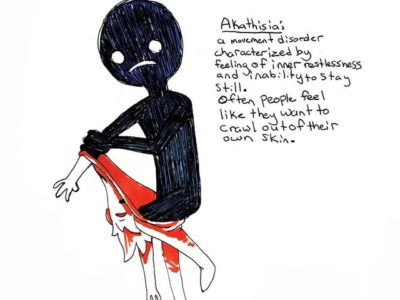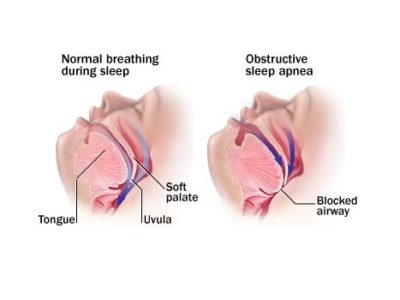
Title of article: Frontal Lobe Syndrome
Author: Mohammad Al-Hanaktah
Editor: Haneen A. Banihani
Reviewer: Ethar Hazaimeh
Abstract
Background: Frontal Lobe Syndrome (FLS) is characterized by a range of cognitive, behavioral, and emotional impairments resulting from damage to the frontal lobes of the brain. This review aims to provide a comprehensive overview of the etiology, epidemiology, clinical presentation, diagnosis, and management of FLS based on current research.
Methods: A thorough literature review was conducted using PubMed and Google Scholar to identify relevant peer-reviewed articles on FLS. Data from these studies were analyzed and synthesized to construct a detailed narrative of the condition.
Results: FLS can result from various etiologies, including traumatic brain injury, stroke, and neurodegenerative diseases. The syndrome is associated with significant cognitive and behavioral impairments that adversely affect patients’ quality of life. Diagnosis involves neuroimaging and neuropsychological assessments. Treatment includes pharmacological and non-pharmacological interventions tailored to the patient’s specific symptoms.
Conclusions: FLS is a multifaceted condition with a broad spectrum of presentations. Effective management requires a multidisciplinary approach that is customized to the individual needs of each patient. Continued research is essential for developing targeted therapies and improving patient outcomes.
Overview
Frontal Lobe Syndrome (FLS) encompasses a range of cognitive, behavioral, and emotional impairments resulting from damage to the frontal lobes. This syndrome significantly impacts patients’ daily functioning and quality of life. The frontal lobes are crucial for executive functions, personality, and social behavior. Damage to these areas can lead to profound changes in an individual’s ability to plan, make decisions, control impulses, and interact socially [1]. This article provides a comprehensive review of the etiology, epidemiology, clinical presentation, diagnostic methods, treatment options, and recent research findings related to FLS.
Etiology and Pathogenesis
FLS can result from various causes, including traumatic brain injury (TBI), stroke, tumors, infections, and neurodegenerative diseases such as Alzheimer’s and Parkinson’s disease [2]. Due to their location and size, the frontal lobes are vulnerable to injury. Damage to these areas disrupts neural circuits involved in executive functions, emotional regulation, and social behavior [3]. The pathogenesis of FLS involves the disruption of these neural circuits, leading to the characteristic symptoms of the syndrome [4].
Epidemiology
The prevalence of FLS varies depending on the underlying cause. For instance, FLS is a common consequence of TBI, affecting approximately 20-30% of patients with moderate to severe head injuries [5]. Stroke-related FLS is also prevalent, particularly in cases involving the anterior cerebral artery territory [6]. Neurodegenerative diseases, such as Alzheimer’s and Parkinson’s, contribute significantly to the incidence of FLS in the elderly population [7].
Clinical Presentation & Complications
Patients with FLS may exhibit a range of symptoms, including impaired judgment, reduced problem-solving ability, difficulty planning, and poor impulse control [8]. Behavioral changes such as apathy, disinhibition, and socially inappropriate behavior are also common [9]. These symptoms can lead to significant functional impairments and complications, including difficulty maintaining employment and relationships [10]. Emotional disturbances, such as depression and anxiety, are also frequently observed in patients with FLS [11].
Workup and Diagnosis
Diagnosis of FLS involves a combination of clinical assessment, neuroimaging, and neuropsychological testing. Magnetic resonance imaging (MRI) and computed tomography (CT) scans are used to identify structural damage to the frontal lobes [12]. Neuropsychological assessments help evaluate the extent of cognitive and behavioral impairments [13]. Commonly used neuropsychological tests include the Wisconsin Card Sorting Test, the Stroop Test, and the Trail Making Test [14].
Differential Diagnosis
Differential diagnosis of FLS includes conditions that may present with similar symptoms, such as:
- Attention-deficit/hyperactivity disorder (ADHD)
- Bipolar disorder
- Schizophrenia
- Other types of dementia
Accurate diagnosis requires a thorough clinical evaluation and the exclusion of other potential causes [15]. The overlap in symptoms between FLS and other psychiatric and neurological conditions necessitates a careful and comprehensive diagnostic approach [16].
Management and Treatment
Management of FLS involves a multidisciplinary approach, including pharmacological and non-pharmacological interventions. Medications such as stimulants, antidepressants, and antipsychotics can help manage specific symptoms [17]. Cognitive rehabilitation, behavioral therapy, and social skills training are essential components of non-pharmacological management [18]. Rehabilitation efforts focus on improving executive functioning, enhancing social interactions, and addressing emotional and behavioral issues [19].
Prevention
Preventive measures for FLS focus on reducing the risk of conditions that can cause frontal lobe damage. This includes wearing protective headgear to prevent TBI, controlling cardiovascular risk factors to prevent stroke, and early intervention in neurodegenerative diseases [20]. Public health initiatives aimed at reducing the incidence of TBI and stroke can significantly contribute to the prevention of FLS [21].
Risk Factors
Risk factors for FLS include:
- Traumatic brain injury
- Stroke
- Neurodegenerative diseases
- Infections and tumors affecting the frontal lobes
- Genetic predisposition to neurodegenerative disorders [22]
Understanding these risk factors is crucial for early identification and intervention in individuals at risk for developing FLS [23].
Prognosis
The prognosis for FLS varies depending on the underlying cause and severity of the damage. Patients with mild to moderate symptoms may experience significant improvement with appropriate treatment and rehabilitation [24]. However, severe cases, especially those associated with extensive brain damage or progressive neurodegenerative diseases, may have a poorer prognosis [25]. Early intervention and a comprehensive treatment plan can improve outcomes for many patients [26].
Recent Updates
Recent research has focused on identifying biomarkers for early diagnosis and developing targeted therapies for FLS [27]. Advances in neuroimaging techniques have improved our understanding of the structural and functional changes associated with FLS [28]. Clinical trials are ongoing to evaluate the efficacy of novel pharmacological treatments and cognitive rehabilitation strategies [29]. These advancements hold promise for improving the diagnosis and treatment of FLS in the future [30].
Recommendations
- Early Diagnosis and Intervention: Early identification and treatment of FLS can improve outcomes.
- Multidisciplinary Approach: Management should involve a team of healthcare professionals, including neurologists, psychiatrists, psychologists, and rehabilitation specialists.
- Personalized Treatment Plans: Treatment should be tailored to the individual patient’s needs and symptoms.
- Ongoing Research: Continued research is necessary to develop better diagnostic tools and treatments for FLS.












